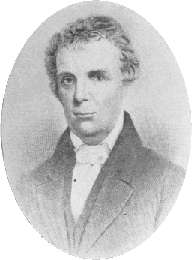|
LivingStone International University
LivingStone International University (LIU) is a private university in Uganda near Mbale town. It is overseen by a board of directors composed of Christians from both Uganda and U.S. The university is non-denominational with no denomination oversight. Historically, it was founded by missionaries associate with the Churches of Christ and Christian Churches in the United States to provide a high-quality university education to a remote and underserved area in East Africa. Faculty and students participate in a mentoring program and a university environment that encompass spiritual, intellectual, interpersonal, and social-cultural dimensions of human development within a diverse student body. Location LIU opened in January 2012 on a leased campus near the center of Mbale, Uganda, by road it is approximately 250 kilometers (160 mi) northeast of Kampala, the capital and largest city in that country. Its coordinates are: 1°05'03.0"N, 34°10'45.0"E (Latitude: 1.084167; Longitude: 3 ... [...More Info...] [...Related Items...] OR: [Wikipedia] [Google] [Baidu] |
Budaka District
Budaka District is a district in the Eastern Region of Uganda. The town of Budaka is the site of the district headquarters. Location Budaka district is bordered by Pallisa District to the north, Mbale District to the east, Butaleja District to the south, and Kibuku District to the west. The town of Budaka is approximately , by road, west of Mbale, the largest city in the sub-region. Overview The district consists of Budaka County Budaka may refer to: *Budaka District, Uganda ** Budaka County, a county in Budaka District **Budaka, Uganda Budaka is a town in the Eastern Region of Uganda. It is the chief town of Budaka District, and the district headquarters are located ... and Iki-Iki County. Population In 1991, the national population census estimated the population of the district at 100,300. The 2002 national census estimated the population at 136,500, with an annual population growth rate of 2.8 percent. In 2012, the population was estimated at 178,900. Economic ac ... [...More Info...] [...Related Items...] OR: [Wikipedia] [Google] [Baidu] |
Uganda
}), is a landlocked country in East Africa. The country is bordered to the east by Kenya, to the north by South Sudan, to the west by the Democratic Republic of the Congo, to the south-west by Rwanda, and to the south by Tanzania. The southern part of the country includes a substantial portion of Lake Victoria, shared with Kenya and Tanzania. Uganda is in the African Great Lakes region. Uganda also lies within the Nile basin and has a varied but generally a modified equatorial climate. It has a population of around 49 million, of which 8.5 million live in the capital and largest city of Kampala. Uganda is named after the Buganda kingdom, which encompasses a large portion of the south of the country, including the capital Kampala and whose language Luganda is widely spoken throughout the country. From 1894, the area was ruled as a protectorate by the United Kingdom, which established administrative law across the territory. Uganda gained independence from the UK on 9 Oc ... [...More Info...] [...Related Items...] OR: [Wikipedia] [Google] [Baidu] |
Churches Of Christ
The Churches of Christ is a loose association of autonomous Christian congregations based on the '' sola scriptura'' doctrine. Their practices are based on Bible texts and draw on the early Christian church as described in the New Testament. The Churches of Christ are represented across the world. Typically, their distinguishing beliefs are that of the necessity of baptism for salvation and the prohibition of instruments in worship. They identify themselves as being nondenominational. The Churches of Christ arose from the Restoration Movement of 19th-century evangelism by groups who declared independence from denominations and traditional creeds. They sought "the unification of all Christians in a single body patterned after the original church of the New Testament." Rubel Shelly, ''I Just Want to Be a Christian'', 20th Century Christian, Nashville, Tennessee 1984, The Restoration Movement was not a purely North American phenomenon. There are now Churches of Christ in Afric ... [...More Info...] [...Related Items...] OR: [Wikipedia] [Google] [Baidu] |
Christian Church (Disciples Of Christ)
The Christian Church (Disciples of Christ) is a mainline Protestant Christian denomination in the United States and Canada. The denomination started with the Restoration Movement during the Second Great Awakening, first existing during the 19th century as a loose association of churches working towards Christian unity, then slowly forming quasi-denominational structures through missionary societies, regional associations, and an international convention. In 1968, the Disciples of Christ officially adopted a denominational structure at which time a group of churches left to remain nondenominational. It is often referred to as The Christian Church, The Disciples of Christ, The Disciples, or the DOC. The Christian Church was a charter participant in the formation of the World Council of Churches (WCC) and of the Federal Council of Churches (now the National Council of Churches), and it continues to be engaged in ecumenical conversations. The Disciples' local churches are c ... [...More Info...] [...Related Items...] OR: [Wikipedia] [Google] [Baidu] |
Mbale
Mbale is a city in the Eastern Region of Uganda. It is the main municipal, administrative, and commercial center of Mbale District and the surrounding sub-region. Location Mbale is approximately , by road, northeast of Kampala, Uganda's capital and oldest city, on an all weather tarmac highway. The city lies at an average elevation of above sea level. The coordinates of the city are 1°04'50.0"N, 34°10'30.0"E (Latitude:1.080556; Longitude:34.175000). The city also lies on the railway from Tororo to Pakwach. Mount Elgon, one of the highest peaks in East Africa, is approximately , north-east of Mbale, by road. Population According to the 2002 national census, the population of Mbale was about 71,130. In 2010, the Uganda Bureau of Statistics (UBOS) estimated the population at 81,900. In 2011, UBOS estimated the mid-year population at 91,800. In 2014, the national population census put the population at 96,189. Twinning Mbale was formally linked with the town of , Wales throu ... [...More Info...] [...Related Items...] OR: [Wikipedia] [Google] [Baidu] |
Kampala
Kampala (, ) is the capital and largest city of Uganda. The city proper has a population of 1,680,000 and is divided into the five political divisions of Kampala Central Division, Kawempe Division, Makindye Division, Nakawa Division, and Rubaga Division. Kampala's metropolitan area consists of the city proper and the neighboring Wakiso District, Mukono District, Mpigi District, Buikwe District and Luweero District. It has a rapidly growing population that is estimated at 6,709,900 people in 2019 by the Uganda Bureau of Statistics in an area of . In 2015, this metropolitan area generated an estimated nominal GDP of $13.80221 billion (constant US dollars of 2011) according to Xuantong Wang et al., which was more than half of Uganda's GDP for that year, indicating the importance of Kampala to Uganda's economy. Kampala is reported to be among the fastest-growing cities in Africa, with an annual population growth rate of 4.03 percent, by City Mayors. Mercer (a Ne ... [...More Info...] [...Related Items...] OR: [Wikipedia] [Google] [Baidu] |
Capital City
A capital city or capital is the municipality holding primary status in a country, state, province, department, or other subnational entity, usually as its seat of the government. A capital is typically a city that physically encompasses the government's offices and meeting places; the status as capital is often designated by its law or constitution. In some jurisdictions, including several countries, different branches of government are in different settlements. In some cases, a distinction is made between the official ( constitutional) capital and the seat of government, which is in another place. English-language news media often use the name of the capital city as an alternative name for the government of the country of which it is the capital, as a form of metonymy. For example, "relations between Washington and London" refer to " relations between the United States and the United Kingdom". Terminology and etymology The word ''capital'' derives from the Latin ... [...More Info...] [...Related Items...] OR: [Wikipedia] [Google] [Baidu] |
The Observer (Uganda)
''The Weekly Observer'' is a Ugandan weekly newspaper headquartered in Kamwookya, Kampala. It is one of the largest privately owned papers in the country co-founded by maverick journalist John Kevin Aliro and nine other directors In 2007, its reporter Richard M Kavuma won the CNN Multichoice African Journalist of the Year award. The newspaper was founded in 2004 and celebrated 10 years of existence in March 2014.Pius Muteekani KatunziUganda: The Observer, A Gamble That Has Paid Off''AllAfrica.com'' 28 March 2014. Retrieved 22 February 2013. Tom kiss of jamila See also * List of newspapers in Uganda This is a list of newspapers in Uganda. List of newspapers See also * Media in Uganda * List of newspapers in Africa * Communications in Uganda References Bibliography * * * External links * {{Africa topic, List of newspapers in ... * Media in Uganda References External links * * ACME https://acme-ug.org/2018/07/04/i-gave-observer-what-i-could-now-its- ... [...More Info...] [...Related Items...] OR: [Wikipedia] [Google] [Baidu] |
List Of Universities In Uganda
This is a list of top Private Universities in Uganda. Private universities Public universities Military universities Other degree-awarding institutions See also * Education in Uganda * List of business schools in Uganda * List of law schools in Uganda * List of medical schools in Uganda * List of university leaders in Uganda References External links31 Universities Fail To Acquire Charter - NCHE * [...More Info...] [...Related Items...] OR: [Wikipedia] [Google] [Baidu] |
List Of University Leaders In Uganda
See also * Education in Uganda * List of universities in Uganda * List of law schools in Uganda * List of medical schools in Uganda * List of business schools in Uganda References {{reflist, 30em External links Website of Uganda National Council for Higher Education Leaders Leadership, both as a research area and as a practical skill, encompasses the ability of an individual, group or organization to "lead", influence or guide other individuals, teams, or entire organizations. The word "leadership" often gets v ... *Uganda Vice-chancellors of universities in Uganda ... [...More Info...] [...Related Items...] OR: [Wikipedia] [Google] [Baidu] |
Eastern Region, Uganda
The Eastern region is one of four regions in the country of Uganda. As of Uganda's 2014 census, the region's population was . Districts , the Eastern Region contained 32 districts A district is a type of administrative division that, in some countries, is managed by the local government. Across the world, areas known as "districts" vary greatly in size, spanning regions or county, counties, several municipality, municipa ...: External links Google Map of the Eastern Region of Uganda References {{Districts of Uganda Regions of Uganda ... [...More Info...] [...Related Items...] OR: [Wikipedia] [Google] [Baidu] |
Universities And Colleges In Uganda
A university () is an institution of higher (or tertiary) education and research which awards academic degrees in several academic disciplines. ''University'' is derived from the Latin phrase ''universitas magistrorum et scholarium'', which roughly means "community of teachers and scholars". Universities typically offer both undergraduate and postgraduate programs. The first universities in Europe were established by Catholic Church monks. The University of Bologna (), Italy, which was founded in 1088, is the first university in the sense of: *being a high degree-awarding institute. *using the word ''universitas'' (which was coined at its foundation). *having independence from the ecclesiastic schools and issuing secular as well as non-secular degrees (with teaching conducted by both clergy and non-clergy): grammar, rhetoric, logic, theology, canon law, notarial law.Hunt Janin: "The university in medieval life, 1179–1499", McFarland, 2008, , p. 55f.de Ridder-Symoens ... [...More Info...] [...Related Items...] OR: [Wikipedia] [Google] [Baidu] |




